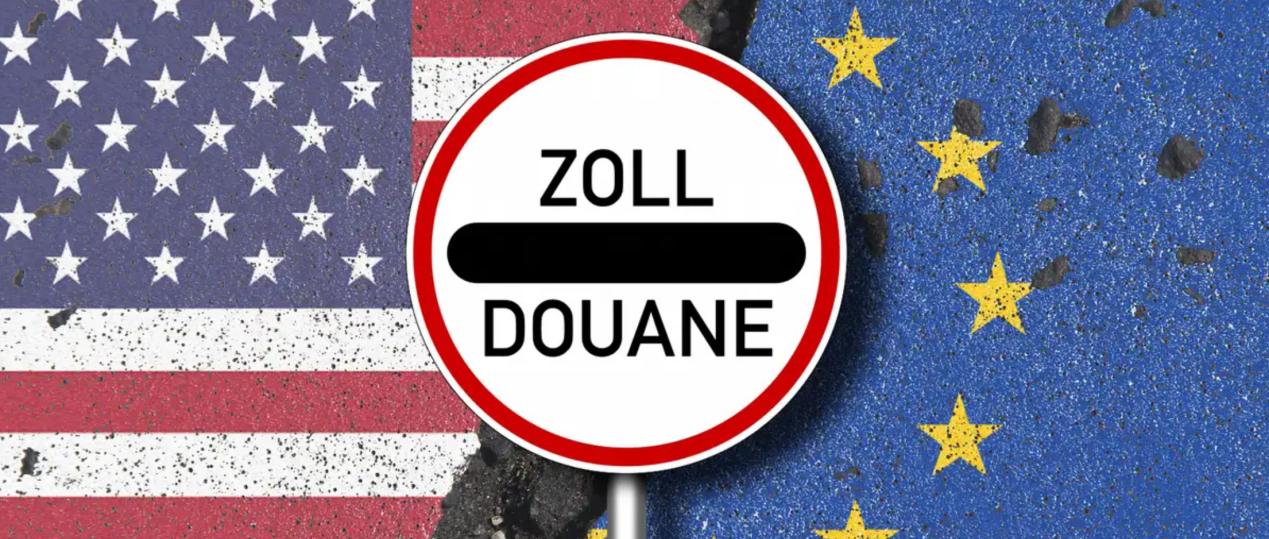
On July 27, 2025, US President Trump and European Commission President von der Leyen announced a new trade agreement in Scotland. The US agreed to impose a 15% tariff on EU goods exported to the US, while the EU promised to increase its investment in the US by 600 billion dollars, purchase 750 billion dollars worth of US energy and military equipment. Although this agreement temporarily eased the risk of a trade war, it sparked widespread controversy within the EU, from the government to the business community, from policymakers to ordinary citizens, exposing the structural contradictions and strategic predicaments of the EU in trade negotiations.
1. Government level: Compromise and divergence coexist
German Chancellor Merkel regarded the agreement as a "necessary compromise to avoid trade conflicts", emphasizing that the reduction of the tariff on German cars from 27.5% to 15% was a "core interest protection". However, the German Industry Federation directly stated that a 15% tariff would lead to an increase in the cost of car exports and might trigger a "catastrophic chain reaction". Italian Prime Minister Meloni said the agreement was "positive", but needed to be "carefully evaluated in detail"; French Prime Minister Atalanta, on the other hand, harshly criticized the agreement as a "dark day", arguing that the EU had made excessive concessions in key areas such as energy and military procurement, which undermined European strategic autonomy.
This divergence reflects the interest differentiation among EU member states: Germany, as an export-oriented economy, is more concerned about the direct impact of tariffs on manufacturing; France is worried that the shift in energy dependence might strengthen Russia's position on the Ukraine issue, and is dissatisfied with the weakening of defense industry sovereignty due to military procurement; Southern European countries such as Italy, with smaller trade surpluses with the US, are relatively less sensitive to the agreement.
II. Parliament and Think Tanks: Institutional Reflection Amidst Criticism
Bernd Lange, the chairperson of the European Parliament's Committee on International Trade, bluntly described the agreement as a "unilateral capitulation", pointing out that the $600 billion investment commitment and military procurement would lead to the hollowing out of European industries. Calculations by a German think tank show that a 15% tariff would cause a 0.1% drop in the EU's GDP and a 0.15% reduction in Germany's GDP, equivalent to a direct loss of 6.5 billion euros. More seriously, the agreement failed to resolve core differences such as digital service taxes and drug regulation, and the US retained the right to restore high tariffs in case of non-compliance, sowing seeds for future negotiations.
The European Policy Centre, a think tank in the EU, analyzed that the essence of the agreement is "exchanging short-term stability for long-term dependence": while the EU reduces its reliance on Russia through energy procurement, it deepens its entanglement with US liquefied natural gas; military procurement may enhance defense capabilities in the short term, but in the long run, it will undermine the autonomous innovation capabilities of the European defense industry. This "market-for-security" strategy exposes the EU's structural weakness in transatlantic relations.
III. Business and the Public: Threats to Survival and Sovereignty Anxiety
Jürgen Dür, the president of the German Association of Wholesale, Foreign Trade and Services, warned that a 15% tariff would pose a "threat to survival" for small and medium-sized businesses, especially exporters of intermediate goods such as auto parts and machinery. The French Agricultural Federation expressed concern that the agreement did not explicitly exempt agricultural products from tariffs, which might expose European farmers to more intense competition from US agricultural products. What is even more disturbing to the European public is that the military procurement clause in the agreement has been exploited by far-right parties. Marine Le Pen, the leader of the French National Rally, called it a "total surrender of French military sovereignty", sparking intense debate on whether "Europe is becoming an economic colony of the United States".
IV. Strategic Level: Passive Adjustment in the Trend of Multipolarization
Immediately after the agreement was reached, the EU launched two countermeasures: one was to accelerate the implementation of the "Global Gateway" infrastructure plan, attempting to reduce its dependence on the US market by expanding investment in Africa and Latin America; the other was to announce the initiation of free trade agreement negotiations with India and ASEAN, aiming to build a "de-Americanized" supply chain network. However, these measures face practical constraints: the EU's annual energy import bill is only about 600 billion US dollars, and the 750 billion US dollar procurement commitment may crowd out investment in other areas; the differences in defense policies among core countries such as Germany and France also restrict the pace of the EU's strategic autonomy.
In the long run, the US-EU trade agreement marks the shift of the global trade system from multilateralism to a "ally-first" club model. Although the EU managed to secure "avoiding the worst outcome" in the agreement, its compromising stance has shaken the equality of the transatlantic partnership. How to strike a balance between maintaining the transatlantic alliance and defending its economic sovereignty will become the core challenge for the EU in the next decade. The outcome of this trade negotiation reminds the world that in the collision between unipolar hegemony and multipolar trends, the strategic maneuvering space for medium powers is accelerating its contraction.

On January 4th local time, Trump warned India that if it does not limit its purchase of Russian oil, the United States will continue to raise tariffs on Indian products. Trump's latest warning sent shockwaves through the Indian financial market in just one day.
On January 4th local time, Trump warned India that if it do…
In October 2025, the US trade deficit narrowed unexpectedly…
According to the British media CoinJournal, recently, due t…
In January 2026, US President Trump once again set his sigh…
Europe is facing a crucial strategic choice: In the face of…
On New Year's Day 2026, BMW China announced a "systematic v…